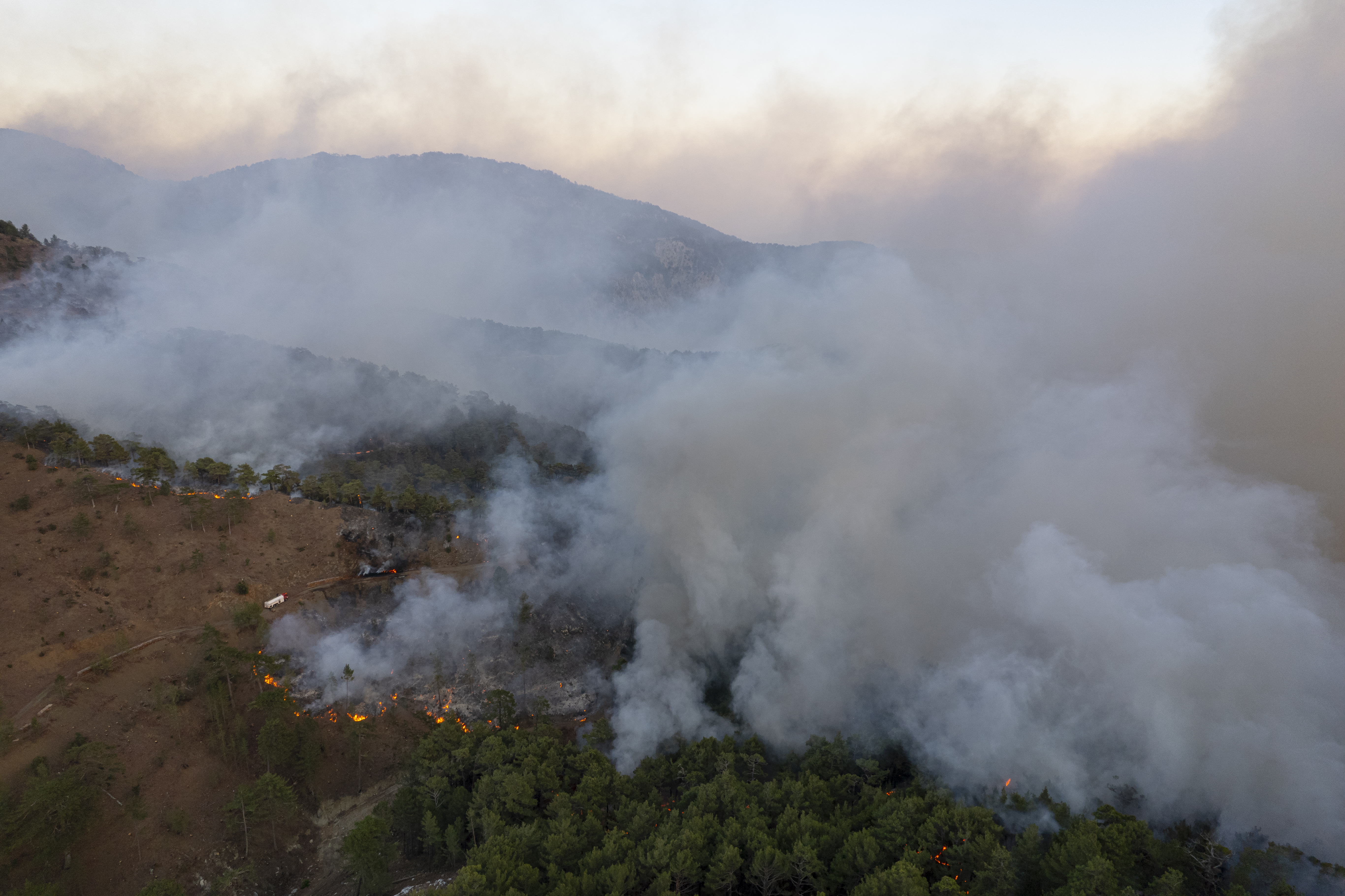Mass Collection of Data on Greece’s Recent Natural Disasters to Train Artificial Intelligence (AI) Tools and Advance Science in the Field of Natural Disaster Management (NDM)

3 November 2023
Prof. Ioannis Pitas (Aristotle University of Thessaloniki), TEMA-Project Manager
Mr. Nikolaos Militsis (Aristotle University of Thessaloniki), TEMA-Researcher (on trustworthy federated analytics)
Mr. Georgios Bouchagiar (Aristotle University of Thessaloniki), TEMA-Project Management Support Team
As a result of climate and other environmental changes, on which scientists have long raised awareness,[i] European Member States are experiencing increasingly frequent and devastating natural disasters, ranging from forest fires to floods. A prime example is Greece’s recent tragic experience. Within just 3 months (from July to September 2023), the country was severely hit by various devastating wildfires and floods; the most recent of them being Evros forest fires and Thessaly floods (natural disasters that caught the attention of local, national, as well as international media).
Mass data collection is imperative to more accurately, efficiently and effectively predict, evaluate, assess, monitor, control or otherwise manage natural disasters and their direct, indirect or side effects. For example, images and videos taken and recorded by drones or other devices can be used to train AI tools with a view to, among others: automatically and promptly detecting fire spots or people and animals in danger; accurately evaluating areas or structures burnt; or measuring the extent and intensity of natural disasters.
In this context and in response to Greece’s recent tragedy, the Artificial Intelligence and Information Analysis Laboratory (AIIA lab)of the Aristotle University of Thessaloniki (AUTH, coordinator of TEMA) urged for mass collection of data (especially, videos, images and text communicated in social media) in particular relation to Greece’s summer forest fires and floods. Citizens, public (national and local) authorities and private entities (from media to laboratories) were thus asked to share with AUTH content related to forest fires, areas and structures burnt, rural or urban areas flooded or, in general, damages. AUTH’s call for mass data collection was communicated and further publicised via media and other entities, as well as AUTH’s relevant mailing lists (e.g., aiia.cvml@lists.auth.gr).
Since AUTH’s call, considerable amounts of data have already been sent by both natural and legal persons (within and outside Greece). These have included images, videos, texts and other information related to forest fires and floods that had devastating consequences in numerous areas all over Greece. To name but a few: Corfu island, Thessaloniki, Evros, Kala Nera, Milina, Makrinitsa, Volos, Athens, Skiathos island, Dervenochoria, Kouvaras, Rhodes island, Agioi Theodoroi, Agios Sotiras, Thessaly, Alexandroupoli, Karditsa, Palamas or Evoia.
In parallel, TEMA partners are making their best efforts to gather similar data on these summer events; the Center for Security Studies (KEMEA) leading this collection procedure. In addition, TEMA partners are making great efforts to gather information on natural disasters that occurred during the same period in other countries, such as Italy, Germany or Finland. The ultimate goal is to generate a huge and well structured dataset that will then be used to train AI tools on natural disasters management.
Upon data anonymisation (where necessary), clearance of potential Intellectual Property (IP) rights and taking of any other necessary (e.g., technical and organisational) measures to comply with applicable legal provisions, the dataset will be offered to the global scientific community free of charge to advance science in the field of NDM. Thanks to these efforts, it can be foreseen that public authorities, as well as other relevant entities around the globe will be benefited and gain further, particularly important insights into ways to more accurately, effectively and efficiently forecast, predict, prevent, evaluate, assess, monitor, control or otherwise supervise natural disasters and their direct, indirect or side effects before, during and after their actual occurrence.
Those holding data on Greece’s summer fires and floods (or natural disasters that occurred elsewhere in Europe) and interested in supporting TEMA efforts are kindly asked to send relevant materials to <georgebouchagiar@csd.auth.gr>.
Bibliography:
[i] Gisli Palsson and others, ‘Reconceptualizing the ‘Anthropos’ in the Anthropocene: Integrating the Social Sciences and Humanities in Global Environmental Change Research’ (2013) 28 Environmental Science & Policy 3 (on human impact on the environment); Han Somsen, ‘The End of European Union Environmental Law: An Environmental Programme for the Anthropocene’ in Louis J Kotzé (ed), Environmental Law and Governance for the Anthropocene (Hart Publishing 2017) 353 (on human failure to control our impact on the environment); Will Steffen and others, ‘Planetary Boundaries: Guiding Human Development on a Changing Planet’ (2015) 347(6223) Science 736 (on the challenging of planetary boundaries and destabilisation of the earth system); Marc Schuilenburg and Rik Peeters, ‘Gift Politics: Exposure and Surveillance in the Anthropocene’ (2017) 68(5) Crime, Law and Social Change 563 (on the Anthropocene).

